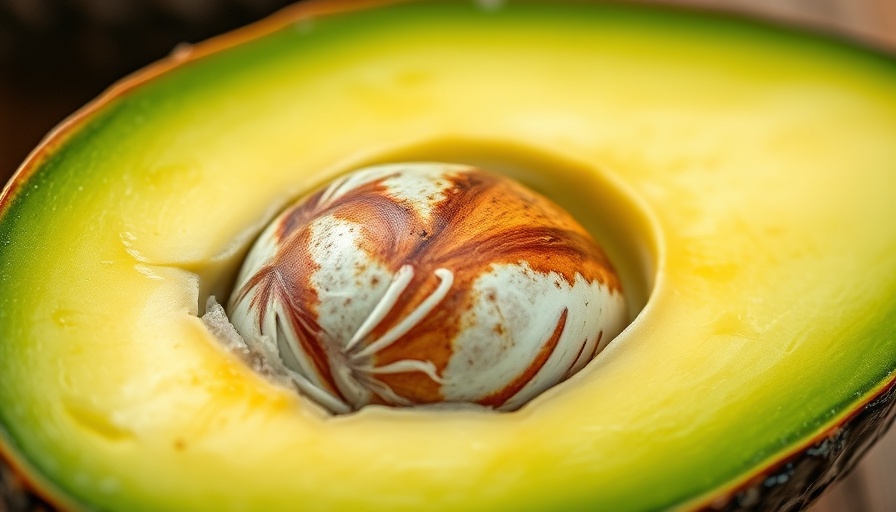
Are You Tossing Away Nutrient Powerhouses? Discover the Avocado Seed
Most of us reach for avocados for their creamy texture and beneficial fats, but what about the often-discarded seed? Despite its unassuming exterior, the avocado seed contains a wealth of nutrients—making up about 13-18% of the avocado’s weight—and some might even argue that it contains the highest concentration of antioxidants. With the rise of DIY health trends, you might be intrigued to learn about the potential benefits and risks involved in consuming these nutrient nuggets.
The Nutritional Benefits of Avocado Seeds: What Science Says
Packed with polyphenols, antioxidant compounds found in fruits and vegetables, avocado seeds have generated buzz due to their potential health benefits. Preliminary studies suggest that consuming these seeds may support immunity and protect against chronic diseases, including obesity, diabetes, and even Alzheimer’s. They’re also touted for their antimicrobial properties, which can help tackle yeast and bacterial overgrowth in the gut.
However, it’s critical to differentiate between avocado seeds and their extracted forms. Most research available pertains to extracts, which have undergone processes that concentrate their beneficial compounds significantly. This means you might not experience the same health returns simply by munching on the seeds yourself.
A Word of Caution: Risks and Considerations
Despite their potential benefits, there are risks to consuming avocado seeds. Current studies are limited and primarily focus on extracts rather than whole seeds, raising questions about the effectiveness of consuming seeds directly. The process of drying and heating them, often a part of DIY preparations, can also diminish their nutrient content. In fact, heating avocado seeds above 350 degrees Fahrenheit can destroy their precious polyphenols, leading to diminished health benefits.
The Alternative: How to Maximize Health Benefits with Avocados
If you’re looking to capitalize on avocados as a health food without the gamble of potentially unsafe seeds, there are numerous data-backed alternatives. For instance, incorporating high-quality oils, such as extra virgin olive oil, can provide many of the same monounsaturated fats without venturing into uncertain territory.
Additionally, pairing avocados with other nutrient-dense foods, such as leafy greens and nuts, can create synergistic effects that enhance your overall nutrient intake, providing plenty of biohacking for longevity.
FAQs: Your Questions About Avocado Seeds Answered
Q: Can I eat avocado seeds raw?
A: Raw seeds are generally hard and not digestible. Cooking or processing them into a powder might make them more palatable, but nutrient loss is a factor to consider.
Q: What’s the healthiest way to consume avocado seeds?
A: If you decide to try seeds, it may be worth exploring the powdered form, but always consider the research on extracts for potent health benefits.
Final Thoughts: Weighing Your Options
At the end of the day, while avocado seeds may look appealing as a health hack in your smoothie, the real winners are the fruits we already know and love. Consider incorporating avocado into your diet alongside other wellness practices, like cold therapy benefits and sleep optimization hacks, for a holistic approach to health that prioritizes safety and effectiveness.
Ready to dive deeper into the world of longevity and wellness? Engaging in personalized health tracking and DIY biohacking tips can help you optimize your approach to health—just remember to keep experimenting and learning!
 Add Row
Add Row  Add
Add 




Write A Comment